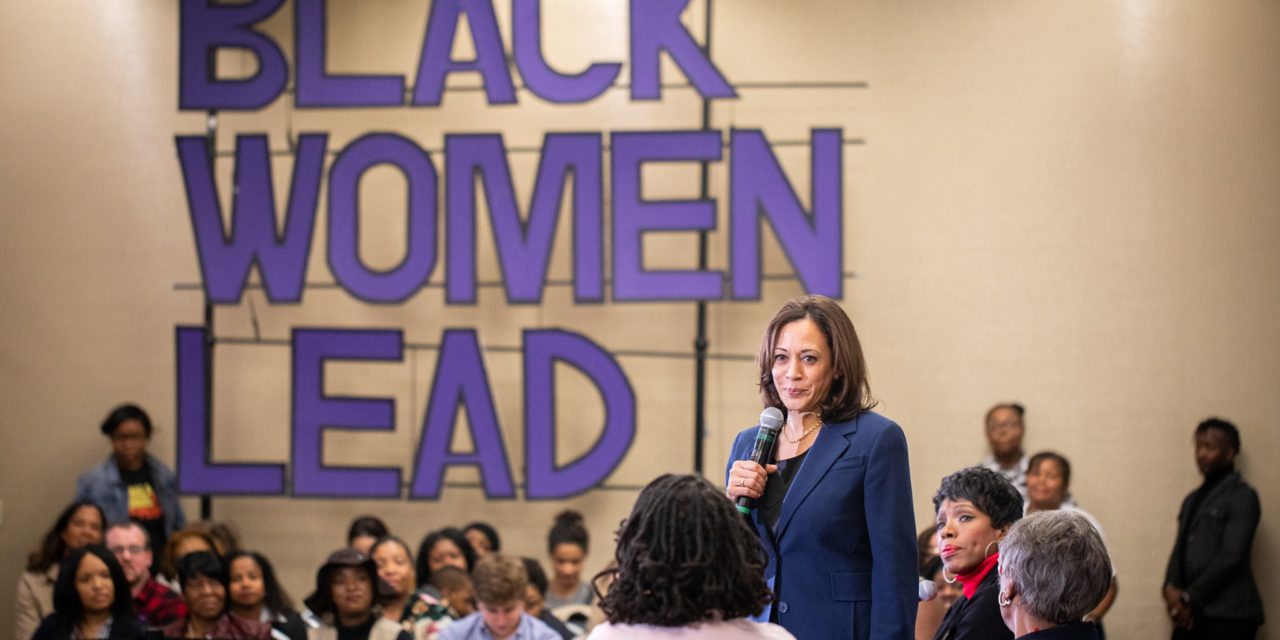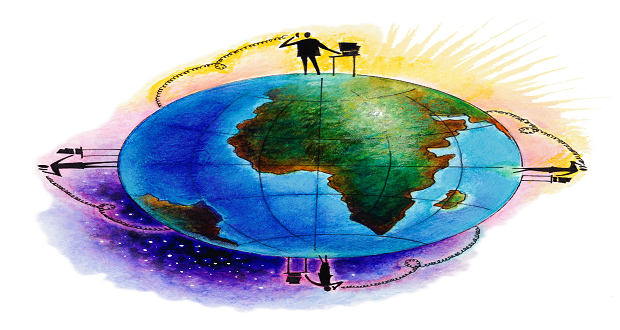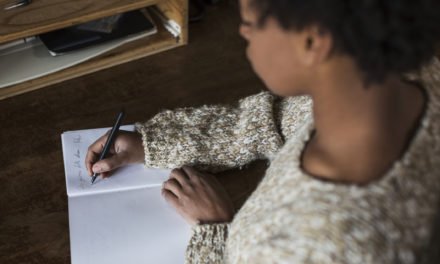Our personal narratives don’t need to be abandoned, even when they can be a tough pill to swallow. Bring them with you. They’re a part of who you are and what inspires you.
– Thasunda Brown Duckett, newly appointed President and CEO of TIAA
Black women’s history week was celebrated last week. March is women’s history month. This year we have lots to celebrate. Black women are finally being noticed for our capabilities. This is our time. An unprecedented number of Black women are being tapped to lead iconic organizations and for major government roles. A Black woman and Asian woman, Kamala Harris, serves as vice president of The United States! Last week Thasunda Brown Duckett was appointed President and CEO of TIAA, succeeding Roger Ferguson, a Black man. Rosalind Brewer was appointed last month to lead Walgreens. Caroline Wanga was recently named CEO of Essence Communications. In December, Mellody Hobson, Co-CEO of Ariel Capital was named board chair of Starbucks.
Black women’s history week was just celebrated. March is #WomensHistoryMonth. We have lots to celebrate. Black women are finally being noticed for our capabilities. This is our time. Click To TweetIn May 2020, Fortune reported that the number of women running America’s largest corporations had hit a new high: 37 of the companies on the list were led by female CEOs. At that time, there were no Black women and only three women of color
Ursula Burns became the first Black woman to head a Fortune 500 company when she was named chief executive of Xerox in 2009; she stepped down in 2016. Mary Winston, who briefly led Bed Bath & Beyond as interim CEO in 2019, was the second.
Business Insider published a story earlier this week highlighting 67 Black women executives of major corporations: from Google, to Salesforce, Home Depot, Warner Brothers and Northrop Grumman, more Black women are being named to significant roles, reporting directly into the C-Suite. From General Counsel to division president — these women are making their mark.
In addition to corporate spaces, Black women lead in science, government, the arts and beyond.
Dr. Kizzmekia Corbett was one of the scientists instrumental in developing the coronavirus vaccine. According to an ABC News piece, “Corbett is an expert on the front lines of the global race for a SARS-CoV-2 vaccine, and someone who will go down in history as one of the key players in developing the science that could end the pandemic.” In a world where there are still so few African American women scientists (in 2015 only 2.5% of STEM graduates), her contribution is monumental by itself, but also because she is paving the way for young Black women who can aspire to be scientists.
Dr. Kizzmekia Corbett was an instrumental in developing the coronavirus vaccine. Her contribution is monumental by itself, but also because she is paving the way for young Black women who can aspire to be scientists. Click To TweetCori Bush is the first Black woman to represent Missouri in Congress, and she won by 60 percentage points. She is a pastor and nurse. She clearly understands the issues near and dear to Black people and came out of the gate fiercely advocating for legislation that erodes systemic racism. Most recently she fought to restore voting rights to the incarcerated — but the initiative failed in Congress with 119 democrats and all Republicans voting against the bill. This was the first time this legislation had ever been brought to Congress. She has vowed to get up the fight.
Stacy Abrams turned Georgia blue in the fiercely fought tight presidential and senate races. Biden was the first democratic presidential candidate to win Georgia in over three decades. Raphael Warnock is the first Black person to be elected to a senate seat. Abrams was surrounded by other powerful Black women leaders who were instrumental in getting more people out to vote. Nse Ufot is the CEO of the New Georgia Project (NGP), a nonpartisan effort to register and civically engage the rising electorate in Georgia. Helen Butler is the executive director of the Georgia Coalition for the People’s Agenda, an advocacy organization that has not only been active in election efforts but also the coronavirus response. Rebecca DeHart is the CEO of Fair Count, a nonprofit that has partnered with Hard to Count to get out both the count for the 2020 Census and the vote. Deborah Scott is the executive director of Georgia Strategic Alliance for New Directions and Unified Policies (GA STAND-UP), which advocates for equity in community economic development.
In addition to business and politics, Black women are leading in the arts and non-profits.
Of course, Amanda Gorman got her national coming out at Joe Biden’s inauguration as youth poet laureate. She mesmerized the world with her inspiring poem, The Hill We Climb.
There are many other Black women taking the lead for racial justice who we do not hear about in the mainstream media. In 2016, Vivian Anderson launched EveryBlackGirl, Inc., to address the national disproportionate discipline used against Black girls. EveryBlackGirl emphasizes to Black girls that they are loved and supported by Black women everywhere. Most recently, Anderson traveled to Osceola County, Florida, to visit a Black teen who was body-slammed by a school resource officer at her high school.
The first woman to lead the Louisville Urban League in its 95-year history, Sadiqa Reynolds, was a key figure in organizing community response in the days and months after Breonna Taylor was killed, and instrumental in fostering constructive dialogue with Louisville city leaders.
Leading the Civil Rights movement today are the likes of Esmeralda Simmons, Melanie Campbell, Lateefah Simon, Susan Burton, Tarana Burke, Erika Andiola, Kimberlé Crenshaw, Johnetta Elzie, Opal Tometi, Patrisse Cullors, Michelle Alexander, Alicia Garza, Laverne Cox and so many more.
I could go on for pages naming Black women who are changing the world—breaking through glass and concrete ceilings—shaping the narrative of who Black women are, what we can be and more importantly what we can do. Click To TweetI could literally go on for pages naming Black women who are changing the world — breaking through glass and concrete ceilings — shaping the narrative of who Black women are, what we can be and more importantly what we can do. We are no longer “hidden figures,” silenced and not acknowledged for our brilliance and our beauty. It’s Our Time!
Black women are not 'hidden figures' to be silenced and not acknowledged for our brilliance and our beauty. It’s Our Time! Click To Tweet



















